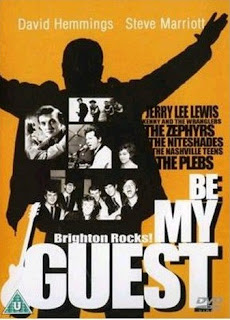Published in 1979 complete with a foreword by Mike Yarwood, this is a collection of brief pen portraits of television stars of the day.
Just to list those thought worthy of discussion brings back a lost era. James Galway, Wendy Craig, Ron Pickering, Dickie Henderson. Max Boyce, Pam Ayres, Brian Glover, Penelope Keith.
And because this is 1979 no one on television is gay and only Trevor McDonald is black.
But the real interest of
This is Their Life lies in the identity of its author. It is Jonathan Meades.
Meades turned 32 in 1979 and fame was still some years away. So on first inspection this looks like hack work. But a bit of browsing reveals it is more interesting than that.
There is the choice of subjects. I doubt any other young television journalist would have included Ian Nairn and W.G. Hoskins in his list.
Look for it, and the acerbic comment is there too. David Hamilton, for instance, is “the lowbrow’s Michael Aspel”.
The gruesome Ted Rogers is suitably dealt with:
Most of his material is written in conjunction with Wally Malston, who is apparently known as ‘King of the One-Liners’, and says that Rogers is ‘a barometer of what the public is thinking’.
So be it, but he is hardly a barometer of what the public is doing. His passion is polo – he has four ponies and plays at Cowdray Park, which is also a regular haunt of Prince Charles.
Meades gets his Foxes right too:
Described by his mother – herself an actress and the widow of the theatrical agent, Robin Fox – as ‘the world’s worst actor’, Edward Fox was for years overshadowed by his younger brother, James, who was arguably the world’s best actor, at least in certain roles.
But the neatest digs are aimed at two targets who are still very much with us 38 years on – the Dimbleboys, as Meades says Bernard Levin used to call them.
Their father, as everyone would have known in 1979, was Richard Dimbleby, who had been the most famous broadcaster of his day.
Here he is on David Dimbleby:
Even before he became a professional journalist, he had to learn to live with accusations of privilege. At Oxford, where he took a third in PPE, his appointment as editor of Isis was opposed by the outgoing editor Kenith Trodd, who is now a noted drama producer, and his staff. Dimbleby countered with a swingeing attack on ‘the left-wing clique’.
A couple of years later, some journalists took it upon themselves to advise him publicly not to attempt to follow in his father’s footsteps at the BBC.
On the face of it it might appear that he has done just that, but, of course, his route and approach have been very different from Richard Dimbleby's. Whereas the father was ever reverential, the son - despite his looks and his smooth cap of hair - is rather an abrasive fellow.
Jonathan, meanwhile, had:
wanted to be a farmer, and his father succeeded in getting him a job on the Royal farm at Windsor, where he trained to be a showjumper.
You can find This is Their Life on Amazon for a penny, which represents good value for students of popular entertainment and Meades enthusiasts.

















































